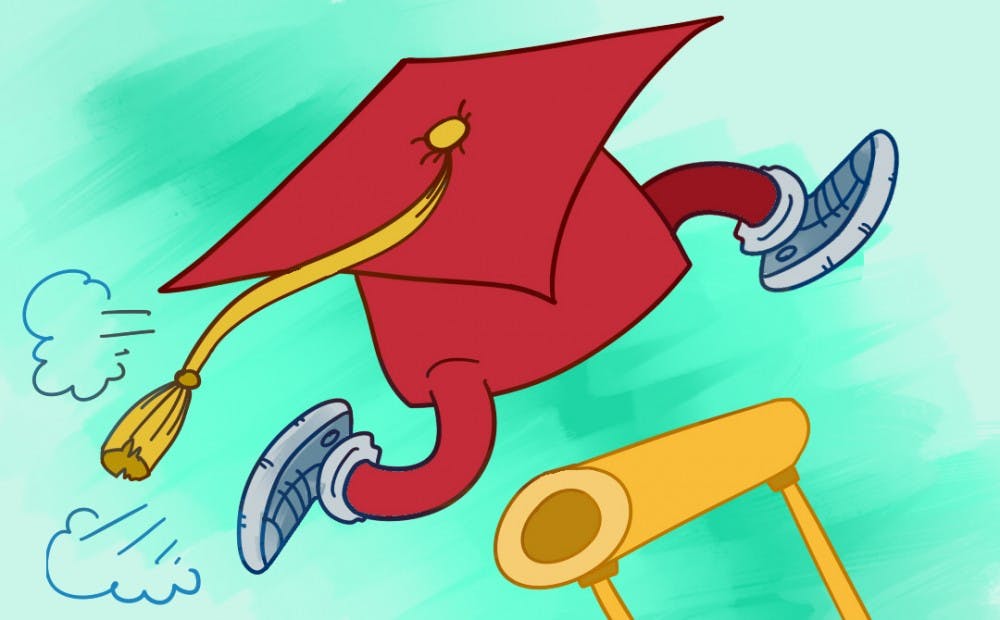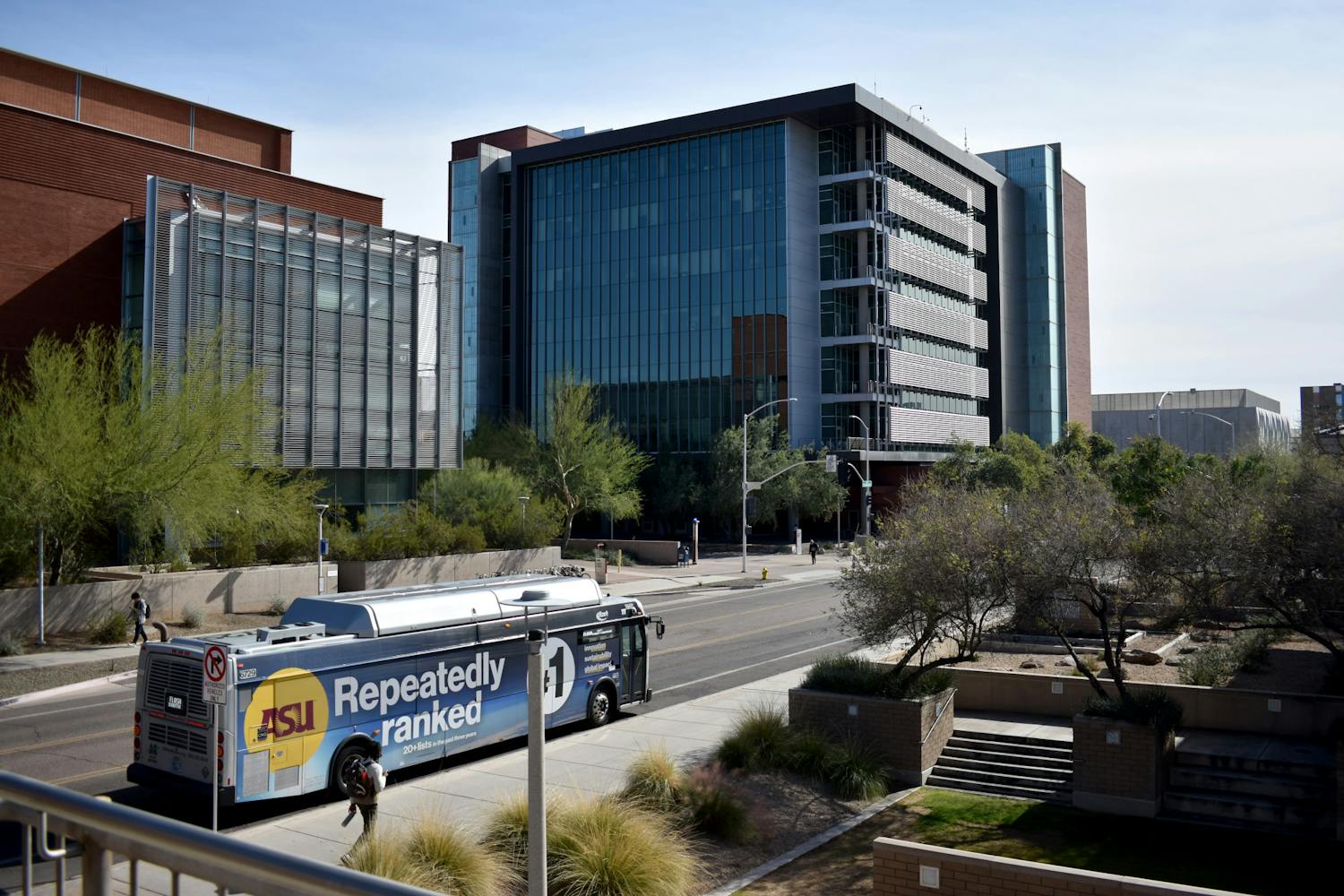The Association of Public and Land-grant Universities announced ASU, along with four other universities, as a finalist for the 2018 Degree Completion Award.
The award is given to universities for improving rates of undergraduate student retention and graduation within the past three years. The winning university, Wayne State University, was announced at the 2018 APLU Annual Meeting which took place Nov. 11 to 13 in New Orleans.
According to the website College Factual, ASU's freshman retention rate is 86 percent, above the national retention rate of 72 percent and Arizona's rate of 66 percent.
Read more: ASU students come for the education and stay for the support
Though the award does not offer financial incentives, it's a renowned title many universities strive to earn.
Travis York, the APLU director of academic and student affairs, said the five finalists, including ASU, presented their initiatives and work at the APLU meeting to other higher education leaders.
"Awards run each year, and we receive between 30 to 40 applicants," York said. "We focus on providing accessible education to the public and bettering the world through our college graduates who are civically engaged."
The scale of impact from the universities was measured by a panel committee. York said ASU's graduation rate increased by 12 percentage points while Wayne State University increased by 20.
"One of the reasons ASU stood out is not only their long-term commitment to the success of their students but also their desire to reach out and provide all students access to resources that benefit the entire student body," York said.
In 2006, ASU introduced eAdvisor, a set of tools for students to track academic progress and stay informed about the classes necessary for graduation.
Arthur Blakemore, ASU's vice provost for student success, said eAdvisor played a role in significantly raising ASU's four-year graduation rate by helping the University understand which courses students need more help in, like math.
"A lot of students fail math because they are missing critical learning blocks that are the foundation to solving a problem, so we implemented adaptive learning technology," Blakemore said.
ASU's first math course to utilize adaptive learning, MAT 117: College Algebra, allows students to go back to early learning objectives to solve problems.
"We have seen significant improvement in the pass rate for these classes and helping students get a healthy GPA," Blakemore said. "(Overcoming) these hurdles further helps the retention rate increase."
In addition, ASU's partnership with Civitas Learning, a company dedicated to improving graduation rates, sends the University nightly predictive analytics and warnings when students begin to have problems.
To monitor other issues, ASU started a program with GetSet analytics integrated into ASU 101, the introductory course required for all ASU freshmen within their respective majors. Students wrote journal entries about how they feel early on in the semester, allowing technology to match them with peers to improve their mindset.
Karen Santos, an exercise and wellness senior, is a first-generation student who will graduate next month with five Dean's List Awards.
Santos has wanted to be a physical therapist since her grandmother passed away after years of being paralyzed with an undiagnosed condition while living in Colombia.
Throughout all four years, Santos has used the University Academic Success Programs and Science Hub to study for classes including calculus, anatomy, chemistry and biology.
She said the most difficult class of her collegiate career was a general biology class because of the challenging concepts and structure of the class.
"I studied for hours for this course and would still fail exams," Santos said.
With Santos' outstanding academic success she received the $2,300 Summer University Grant which helped her fund summer classes to graduate.
Jackson Dangremond, a health innovation major and former president of Undergraduate Student Government Downtown, will graduate in May 2019.
He found his passion for health after he got a concussion during his sophomore year.
"I remember this ringing sound in my head that I have had from previous concussions," Dangremond said. "During the recovery process, the concussion completely changed every aspect of my behavioral health."
He withdrew from a few classes to avoid the risk of losing scholarships. Then, three of his friends died from unrelated causes within a three week period.
"All of this happened when I was at the busiest point of my life as president for USGD and a full-time student," Dangremond said. "I compartmentalized my feelings by going in survival mode."
He began to go to the Disability Resource Center and ASU Counseling Services, which helped him through the physical and mental recovery process.
"It was extremely helpful to have those resources directly on campus, and I wish I had asked for help sooner," Dangremond said. "My goal, ultimately, is to graduate from college, but it's important to take care of yourself. It's ok to have your own timeline to graduate."
Reach the reporter at mdhunte2@asu.edu or follow @masaihuntertv on Twitter.
Like The State Press on Facebook and follow @statepress on Twitter.




